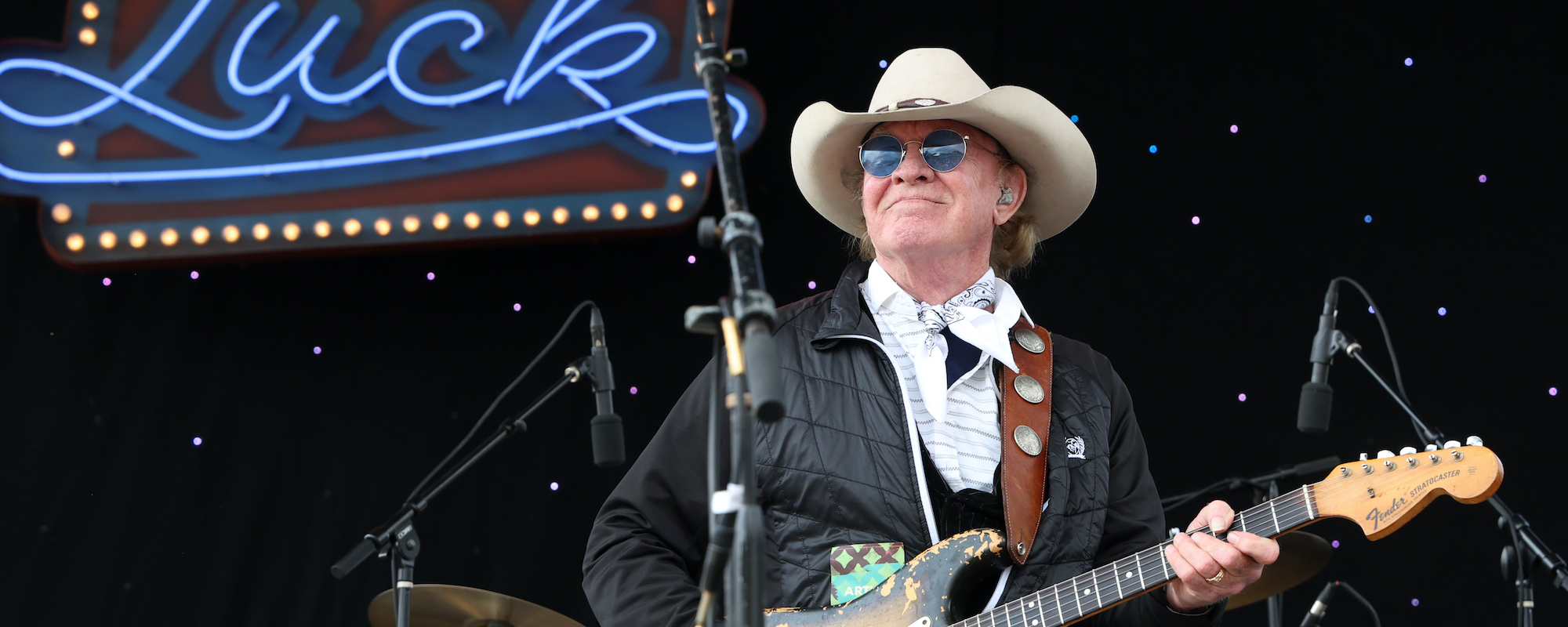For most young men, becoming their own man is one of, if not the most important part of growing up. Now, as hard as that already is, imagine if you’re the son of someone famous. It’s a run from the past that seemingly no one can escape given the gargantuan shadow they have to overtake. At face value, it’s seemingly an impossible feat. Well, that is the exact feat Hank Williams Jr. overcame being the son of Hank Williams.
Videos by American Songwriter
For the longest time, Hank Williams Jr. and his father were inseparable. Everyone wanted Williams to be his dad, sing like his dad, and live his life like his dad. However, Williams concluded that if he wanted to be known for his own talents, he had to undergo a complete metamorphosis. Which he accomplished in his early 20’s.
Hank Williams Jr.’s Need for Freedom
Out of the many times Williams has spoken out of his father, one of the interviews where he became the most transparent was on The David Letterman Show in 1982. For context, Williams was 33-years-old and had eight albums on the country charts. However, before this individual success, he spent most of his earlier career imitating his father and appeasing the fans who wanted him to do so. Consequently, Williams told Letterman, “Hank Williams Jr., that’s a name that gets you started real good in some ways” and “Also closed the doors in some other ways.”
When recollecting his years as a child musician, Williams stated, “It was fun for the little boy to be doing Hank Williams, but it was h— for the man.” Furthermore, when Williams Sr. died, Hank Williams believed audiences “Wanted any part of him they could get back.”
Given this notion, Williams believed he was indebted to his father’s fans. Thus, he would carry on his legacy by performing his music and mimicking his ways until his early ’20s. Which is when he decided to set himself free and become his own man.
Achieving Musical Independence
In Hank Williams fashion he gave a simple answer to how achieved this freedom. Telling Letterman all it took was “writing songs and playing shows and showing off.” Although, both Williams and fans know it was far more complicated than that. Williams attested to that fact, stating his success was heavily due to folks such as the Marshall Tucker Band, The Allman Brothers, Johnny Cash, and Waylon Jennings paving for the type of music he wanted to make.
It was when this wave of music became popular that Williams knew he no longer had to sing “Your Cheatin’ Heart” somberly and slowly anymore. Instead, he could pick an electric guitar and write songs such as “Dinosaur” and “A Country Boy Can Survive” and as a result, become one of country music’s greatest outlaws ever.
Photo by Terry Wyatt/Getty Images for Country Music Hall of Fame and Museum













Leave a Reply
Only members can comment. Become a member. Already a member? Log in.